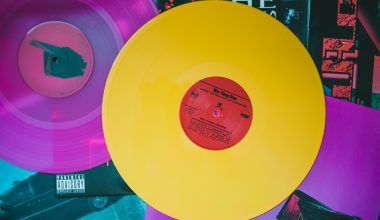When creators hear the term “royalty advance,” it can sound both exciting and intimidating. Whether you’re an author, musician, or artist, this term will likely cross your path at some point in your creative journey. But what does it actually mean? How can it impact your career and finances? Don’t worry—in this blog, we’ll break it down for you in simple, easy-to-understand terms.
A royalty advance can feel like a golden opportunity. It’s the payment you receive upfront for your work before any royalties start coming in. Think of it as an advance payment against your future earnings. While this may sound great, it’s important to know how it works, its pros and cons, and how you can make the most of it.
So, let’s explore royalty advances step by step and answer the most common questions creators have. By the end of this guide, you’ll feel confident about understanding royalty advances and negotiating them effectively.
What is a Royalty Advance?
A royalty advance is an upfront payment provided to a creator, such as an author, musician, or content producer, by a publisher, record label, or other companies. It’s a pre-payment against the royalties you are expected to earn in the future. Essentially, the company is taking a calculated risk that your work will generate enough sales to cover the advance and more.
Let’s simplify this further: if a book publisher offers you a $10,000 royalty advance, they are giving you that money upfront. However, the $10,000 is an advance on the royalties you would earn from book sales. If you make enough sales to “repay” the $10,000, you’ll start earning additional royalties after that. Until then, you won’t see any further payments.
Royalty advances are very common in industries like publishing, music, and content creation. But knowing how they work will give you the power to decide whether accepting an advance is right for you.
Why Do Companies Offer Royalty Advances?
Companies offer royalty advances for a simple reason: they believe in your work. By giving you money upfront, they are essentially betting that your book, album, or project will succeed and generate enough revenue to justify the investment.
It’s also a way for companies to motivate creators. An advance can provide the financial support needed to focus entirely on completing the work. For example, authors may use a royalty advance to take time off their day jobs and dedicate themselves fully to writing a book.
Of course, this isn’t charity—it’s a business decision. Publishers or record labels invest in creators because they see potential for profits. A royalty advance allows them to secure the rights to your work and have confidence that you’ll deliver a finished product.
How Do Royalty Advances Work?
At its core, a royalty advance is pretty straightforward. The process usually works like this:
- Negotiation: The company (like a publisher or record label) evaluates your work’s potential and offers you an advance.
- Contract Agreement: Both parties agree on the terms of the advance, including payment schedules, royalty rates, and other conditions.
- Payment: You receive the royalty advance. Often, it’s paid in installments—for example, half upfront and half after completing the project.
- Earning Out: After your work is released, sales generate royalties. Those royalties first go toward repaying the advance. Once the advance is fully “earned out,” you begin to receive additional royalties.
For instance, let’s say you received a $5,000 advance for a book. If your book generates $1 in royalties per sale, the first 5,000 sales will go toward “repaying” the advance. Once that happens, you’ll start receiving royalty payments for each sale after the 5,000th.
What Happens If You Don’t Earn Out Your Royalty Advance?
A common question creators ask is: “What if I don’t make enough sales to cover the advance?” This can sound stressful, but in most cases, you don’t have to repay the advance. That’s because the advance is technically a risk that the company takes.
For example, if you received a $10,000 advance but your work only generated $6,000 in royalties, you typically won’t owe the remaining $4,000. Instead, the company absorbs the loss as part of the business risk.
However, this also means you might not receive another royalty advance in the future unless the company remains confident in your potential. This is why it’s important to understand the marketability of your work and negotiate fair terms.
Benefits of Accepting a Royalty Advance
Accepting a royalty advance comes with several benefits, especially for creators who need financial stability to complete their work. Here are the main advantages:
- Financial Support: A royalty advance gives you the funding you need upfront. This can cover expenses like research, studio time, editing, or simply your living costs while working.
- Motivation and Focus: When you have financial security, you can focus on creating the best work possible without constantly worrying about bills.
- Recognition: Receiving a royalty advance often signals that a company believes in your work’s potential. It can build confidence in both yourself and your audience.
- Lower Risk: Since you usually don’t have to repay the advance if you don’t earn it out, it reduces your financial risk.
For many creators, these benefits outweigh the downsides. However, every situation is different, so it’s always smart to evaluate the offer carefully.
Potential Drawbacks of Royalty Advances
While royalty advances have clear benefits, they also come with some potential downsides:
- Delayed Royalties: You won’t receive royalties until the advance is fully earned out. This can be frustrating if you expected regular payments after release.
- High Expectations: Companies expect your work to perform well. If it doesn’t, it might impact your ability to negotiate future advances.
- Contract Limitations: Some royalty advance agreements may include restrictive terms. For example, the company might ask for certain creative control or exclusive rights.
Being aware of these drawbacks can help you make informed decisions when negotiating an advance.
How to Negotiate a Royalty Advance
Negotiating a royalty advance can feel intimidating, but it’s a crucial step in protecting your interests. Here are a few tips to help you negotiate confidently:
- Know Your Worth: Understand the value of your work and how much revenue it might generate. Research similar projects to gauge fair market value.
- Don’t Accept the First Offer: Companies often start with a lower offer. Don’t be afraid to negotiate for better terms.
- Clarify Payment Terms: Make sure you understand how and when the advance will be paid.
- Seek Professional Advice: If possible, work with an agent, lawyer, or experienced creator who can help you navigate the terms.
The goal is to ensure the royalty advance works in your favor without compromising your long-term success.
Is a Royalty Advance Right for You?
Deciding whether to accept a royalty advance depends on your unique situation. If you need financial support to create your best work, a royalty advance can be a fantastic opportunity. However, if you prefer to receive regular royalties without waiting to “earn out” an advance, you might opt for a different payment structure.
Ultimately, understanding the details of royalty advances will empower you to make the right choice for your creative career. By carefully evaluating offers, knowing your worth, and negotiating smartly, you can set yourself up for success.
So, the next time someone mentions a royalty advance, you’ll know exactly what it means, how it works, and how to make the most of it. Happy creating!
For further reading, explore these related articles:
For additional resources on music marketing and distribution, visit DMT Records Pvt. Ltd..






